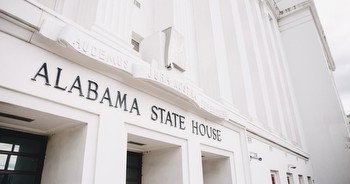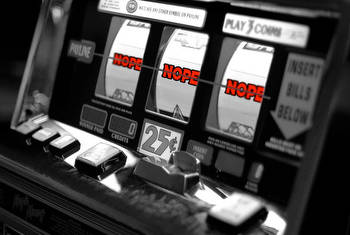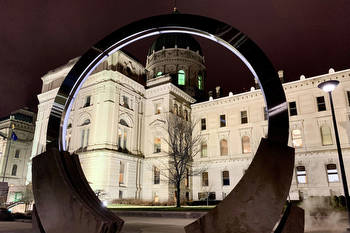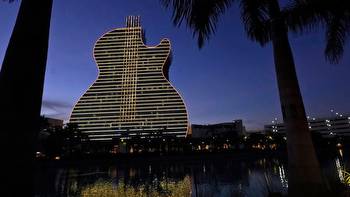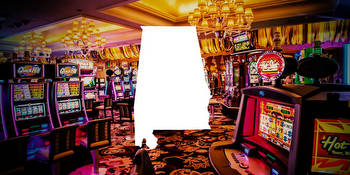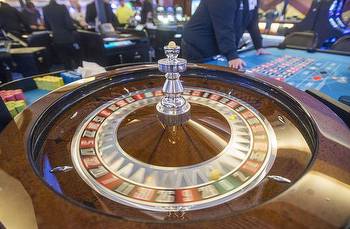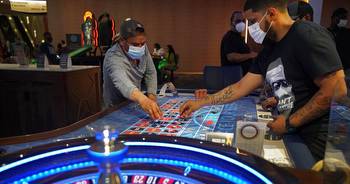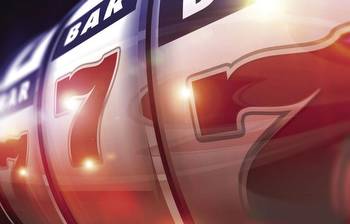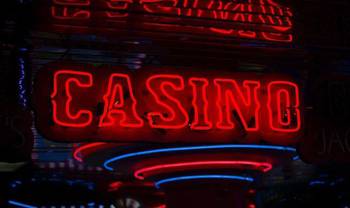Iowa’s gambling flood gates opened 50 years ago
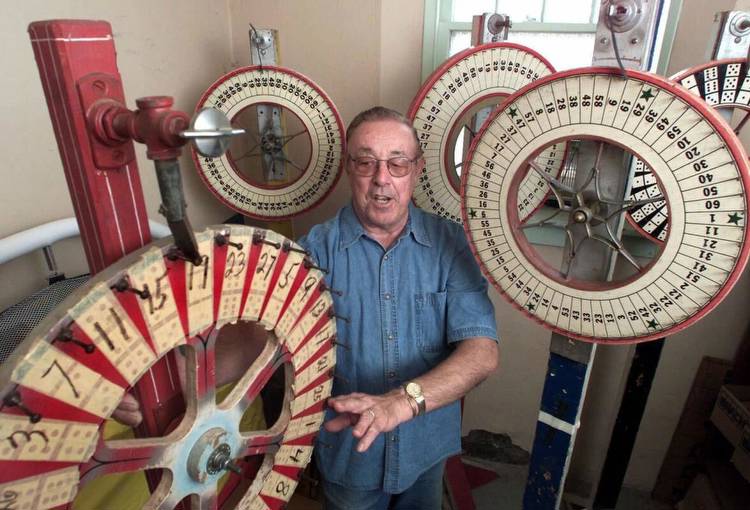
In the April 12, 1972, edition of The Gazette, Iowa Solicitor General Harold Haesemeyer predicted the Legislature’s decision that year to scrap a constitutional provision banning lotteries in Iowa would not open the flood gates to legalized gambling.
“The only real effect is that the Legislature will have some flexibility in legislating on gambling,” Haesemeyer said.
It’s true, the Iowa Legislature certainly has been flexible when it comes to gambling in the decades since. But about those flood gates — they clearly did not hold. Iowa is saturated in gambling options, with casinos, racetrack casinos, sports betting and a lottery. Iowans wanted to gamble, and our leaders obliged.
And the first rain drops in the flood fell 50 years ago this month in the tiny Clayton County town of North Buena Vista.
Tucked back on page 4 of the Sept. 7, 1971, Gazette was an Associated press report on a Catholic priest who had been charged with keeping a gambling house. It actually was the Immaculate Conception Church’s annual Labor Day weekend picnic, which drew thousands to the hamlet on the Mississippi River northwest of Dubuque for decades.
Gambling and beer were major draws to the picnic, with proceeds going to the church. But after 10 p.m. Sunday Sept. 5 that year, state agents under the orders of then-Attorney General Richard Turner raided the picnic. They seized gambling equipment, including “wheels of fortune,” and $600 in cash.
But no one was charged with selling beer. “They (state agents) were too busy with the gambling to get anything else,” said then-Clayton County Attorney Harold Rahms.
Public reaction to the raid mainly centered in the contention that Turner had vastly overreacted. Catholics, especially, were incensed that the state would raid a church picnic and charge a priest.
Two days later, on Sept. 9, The Gazette carried news that Gov. Bob Ray supported the effort to strike the constitutional ban on lotteries with hopes of easing rules on social gambling such as bingo.
The constitutional provision, which read “No lottery shall be authorized in this State; nor shall the sale of lottery tickets be allowed,” was included in the state constitution drafted in 1857. It was broadly interpreted to ban all forms of gambling and games of chance, even pinball.
“Bingo isn’t something that involves a crime,” Ray said, recognizing the raid’s political fallout. “This is something people like to do.”
On Sept. 18, the priest’s day in court was front page news. The Gazette’s special correspondent reported that Father Carl Ruhland arrived at the courthouse in Elkader at the front of a 25-car caravan from North Buena Vista. Seventy five people packed into the courtroom.
The Gazette reported that Turner had been tipped off about the picnic by “a Des Moines newsman.” Ruhland was fined $100 and he invited everyone to a local cafe for free coffee. The $600 in cash was donated to the county schools fund and 12 pieces of gambling equipment were to be destroyed.
But the damage to Iowa’s tough-on-gambling laws had been done. The political winds shifted in favor of looser rules with hopes of avoiding more picnic raids. Even Turner, still feeling the heat, blamed lawmakers and past judicial rulings for pushing him to enforce outdated laws.
“I know you consider me controversial. But I submit that is not really me. It’s my job,” Turner told reporters, according to a Sept. 27 article. “I don’t have horns.”
In 1972, the Legislature sent the lottery amendment to Iowa voters. The Gazette editorial board supported the change.
“The Gazette supported the repeal amendment during legislative debates. We believed then, and we still believe, that the question of whether or not to legalize bingo or other forms of lotteries would be better left to the judgment of a contemporary Legislature than to be banned outright by the constitution,” our editorial argued.
In November 1972, the amendment won 68 percent of the vote. In 1973, lawmakers passed legislation permitting “friendly” social gaming, while banning casino gambling where the house gets a cut, and set a 24-hour loss limit of $500.
For two years, gambling got very friendly in Iowa. Bars and other businesses set up card games. There was bookmaking. High-stakes action was luring Iowans to part with their paychecks.
“There were high stake operations in at least a dozen places and the housewives were raising hell with the sheriffs because their husbands were running over to the beer joints on Fridays and losing half their paychecks,” Turner told the New York Times in 1975.
So lawmakers pulled back the reins, outlawing casino-style games such as black jack, bookmaking and the use of gambling equipment. They lowered the daily loss limit to $50.
But in the years to come, lawmakers seldom applied the brakes.
Pari-mutuel horse and dog track racing was authorized in 1983. The state lottery was created in 1985 and riverboat gambling was approved by lawmakers in 1989. Racetracks got slots in 1994. Riverboat cruising requirements and loss limits were eventually tossed. Casinos moved from water to land. Gaming regulators handed out waves of licenses. Sports betting is now legal.
Iowa is home to 19 state licensed casinos. During the 2021 fiscal year through May, adjusted gross revenue topped $1.4 billion. Casinos were on track to have a record revenue year.
That’s a far cry from the $600 seized in North Buena Vista.
``We're weren't shooting anybody or scalping young babies,'' Father Ruhland said in a 2001 AP interview. He died in 2007. ``I did everything in the world to get more money in for our church and school. It was the best picnic in the whole darn area.''
And possibly the most consequential picnic in Iowa history.
(319) 398-8262; todd.dorman@thegazette.com








